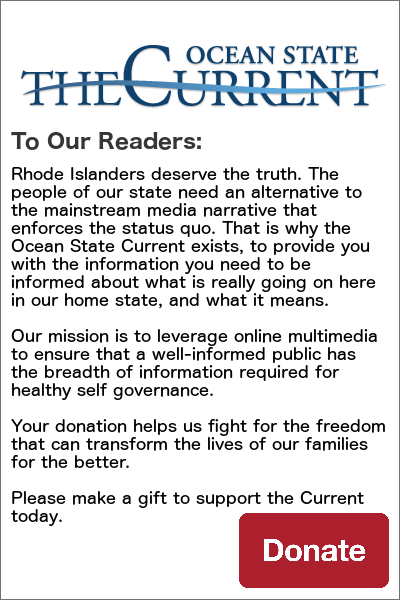The Unhealthy “New Normal”
Running through a few extended bullet points on factors affecting wage growth, Megan McArdle comes to a very unsatisfying conclusion:
So this slow wage growth may simply be what the labor market now looks like. Earlier eras of tight labor markets produced big increases in wages, but those increases were matched by rising worker productivity. Today, employers striving for productivity may replace the worker altogether, either by outsourcing to a lower-wage country or by giving that job to a machine.
So the biggest mystery is not why U.S. wage growth seems stuck even as unemployment falls. The biggest mystery is how we’re going to adjust our economy, our culture and our politics to the new normal.
[box type=”note” style=”rounded”]To Our Readers: We need your support to challenge the progressive mainstream media narrative. Your donation helps us deliver the truth to Rhode Islanders. Please give now.[/box]
This isn’t all that new. We’re going on years, maybe decades, of people pondering what economic system would distribute wealth when human labor becomes of less value. Personally, I remain unpersuaded, in large part because this is another area that leads quickly to calls for increased government control and redistribution of wealth (which solidifies government’s role at the middle of our society).
As McArdle notes in different terms, one of the “problems” is that our quality of life continues to improve. It may be that wages are stagnant only because our economic manipulation prevents prices from helpfully signaling what’s actually going on. Your income gets you more quality of life, in other words, even if it isn’t captured in measures of inflation and wages. Stagnant productivity could be an indicator of this.
To be simplistic, manipulation is preventing prices for various goods from going up or down as the market would prefer, which takes the pressure off workers to try to make more money, which takes the pressure off of employers to get more production out of their workforces, which dovetails with the stability of their prices. Obviously, in this view, pressure is taken off of the drive toward productivity (related to McArdle’s mention of disability as a work alternative) and various goods are over- or under-priced relative to their actual value.
None of this is healthy, and we shouldn’t try to write it all off as a “new normal.”


